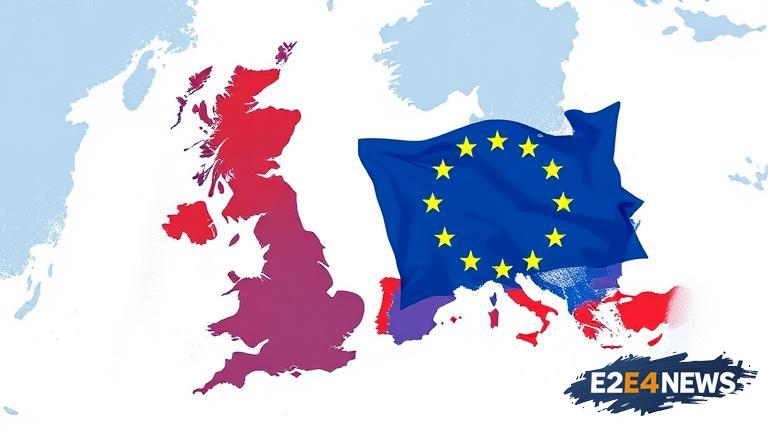A series of polls conducted in the United Kingdom has revealed a notable change in public opinion regarding the country’s relationship with the European Union. The surveys suggest that a growing number of Brits now support rejoining the EU, marking a significant shift in attitudes since the Brexit referendum in 2016. According to the polls, a majority of respondents believe that the UK’s decision to leave the EU was a mistake, and many are now calling for a reevaluation of the country’s position. The polls also indicate that the British public is becoming increasingly dissatisfied with the current state of the country’s economy and politics, with many blaming the government’s handling of Brexit for the nation’s woes. The shift in public opinion is attributed to various factors, including the ongoing economic uncertainty, the impact of the COVID-19 pandemic, and the perceived benefits of EU membership. Many Brits are now recognizing the value of being part of a larger economic and political bloc, and are beginning to question the decision to leave the EU. The polls have sparked a renewed debate about the UK’s future relationship with the EU, with some calling for a second referendum or a renegotiation of the Brexit deal. The British government, however, remains committed to its Brexit strategy, despite growing opposition from within its own ranks. As the UK navigates its post-Brexit landscape, it is clear that the country’s relationship with the EU will continue to be a major point of contention. The polls serve as a reminder that public opinion can be fleeting, and that the British government must be responsive to the changing needs and attitudes of its citizens. With the UK’s economy facing significant challenges, including a potential recession and a decline in international trade, many are calling for a more nuanced approach to the country’s relationship with the EU. The British public is increasingly recognizing the importance of maintaining strong economic ties with the EU, and is beginning to demand a more pragmatic approach to Brexit. The shift in public opinion has significant implications for the UK’s political landscape, with many predicting a major realignment of the country’s political parties. As the debate over Brexit continues to rage, it is clear that the UK’s future relationship with the EU will be shaped by a complex interplay of economic, political, and social factors. The polls serve as a reminder that the British public is not afraid to change its mind, and that the government must be willing to adapt to shifting public opinion. With the UK’s future hanging in the balance, it is imperative that the government engages in a meaningful dialogue with its citizens, and works to address the concerns and uncertainties that have arisen as a result of Brexit. The British public is calling for a more nuanced and pragmatic approach to the country’s relationship with the EU, and it is up to the government to respond. The polls have sparked a renewed sense of urgency and debate about the UK’s future, and it is clear that the country’s relationship with the EU will continue to be a major point of contention in the months and years to come. The shift in public opinion has significant implications for the UK’s economy, politics, and society, and it is imperative that the government takes a proactive and responsive approach to addressing the changing needs and attitudes of its citizens. The British government must be willing to listen to the concerns of its citizens, and work to find a solution that balances the country’s economic and political interests with the needs and aspirations of its people. The polls serve as a reminder that the UK’s future is not set in stone, and that the country’s relationship with the EU can be reevaluated and renegotiated. As the UK navigates its post-Brexit landscape, it is clear that the country’s future will be shaped by a complex interplay of economic, political, and social factors, and that the government must be responsive to the changing needs and attitudes of its citizens.





